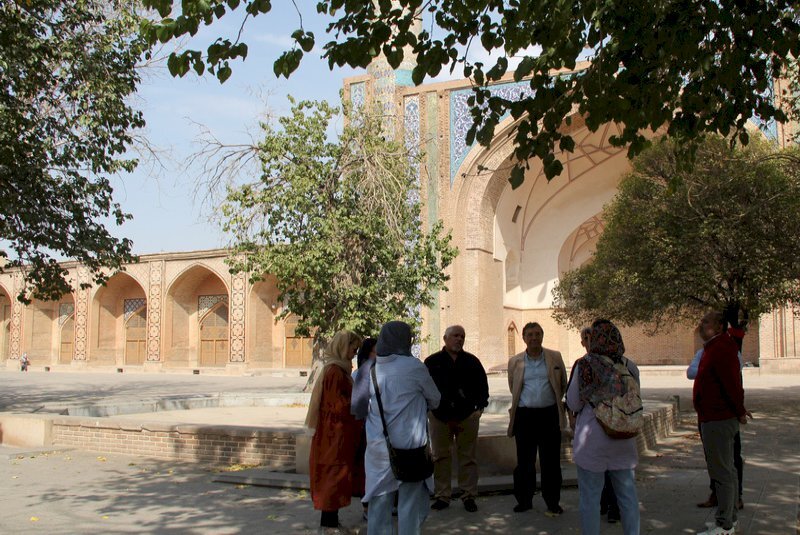Diplomats from Latin America tour Qazvin attractions

TEHRAN – On Sunday, a group of diplomats from Spain, Cuba, Chile, Uruguay, and Brazil visited tourist attractions in Qazvin province, the provincial tourism chief has said.
Sardar Bozorg Water Reservoir, Jameh Mosque of Qazvin, Ali Qapu Gate, Aminiha Hosseiniyeh, Cantor Church, Chehel Sotun Palace, and Qazvin Museum were among the destinations visited by the diplomats, Alireza Khazaeli said.
Qazvin was once the capital of the mighty Persian Empire, under Safavids, from 1548 to 98. It is a major tourist destination with a wonderfully restored caravanserai-turned-arts precinct, some quirky museums, and a handful of decent eating options. For most travelers, Qazvin is also primarily the staging point for excursions to the famous castles of the Assassins and trekking in the sensational Alamut Valley.
Also known as the castle of the Assassins, the 12th-century Alamut castle is nestled on top of a peak. It was once a shelter for the followers of Hasan-e Sabbah (1070–1124) who was a spiritual leader of an Islamic sect. In the early 1930s, British-Italian explorer and travel writer Freya Stark described her exploration of the place in her book “The Valleys of the Assassins.”
Qazvin is also home to one of the biggest roofed caravanserais in the country; Sa’d-al Saltaneh caravanserai. Dating back to the Qajar era, it’s a place for discovering tens of Hojreh shops, cafes, yards, and a stunning mosque. It’s a place for visitors who want to experience the culture, cuisine, and hospitality of Iran.
AM
